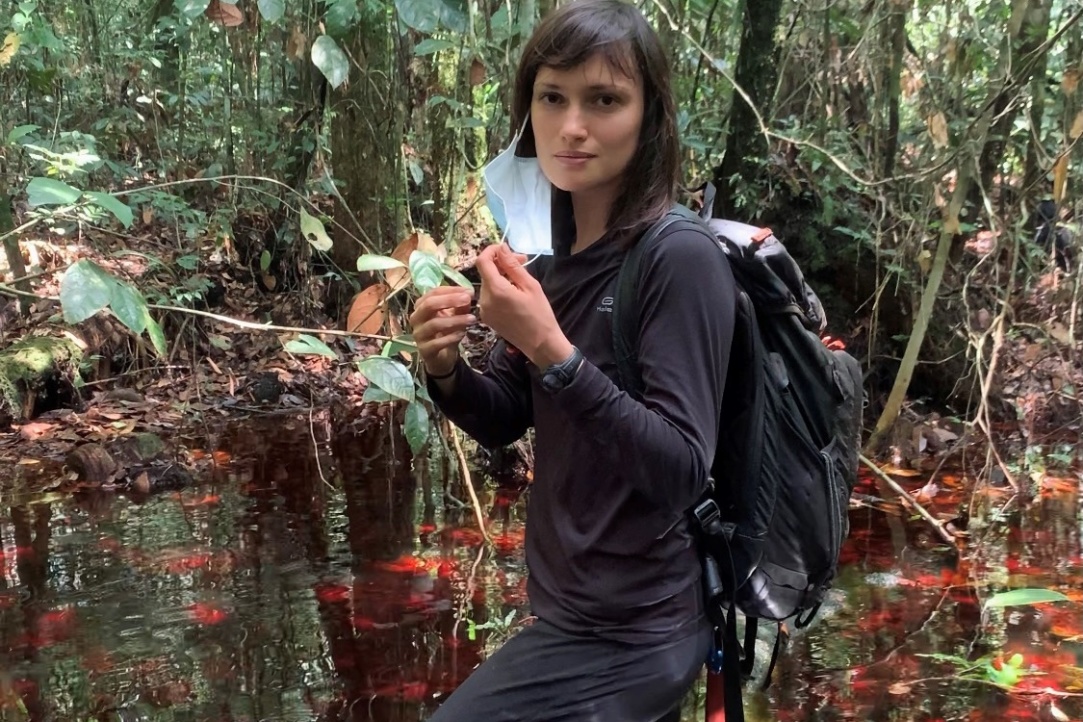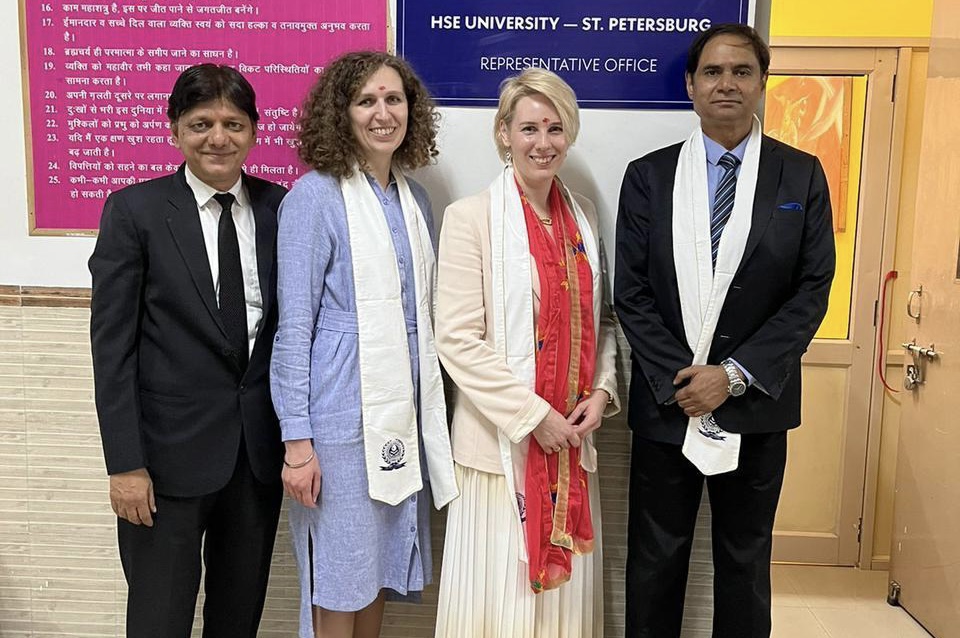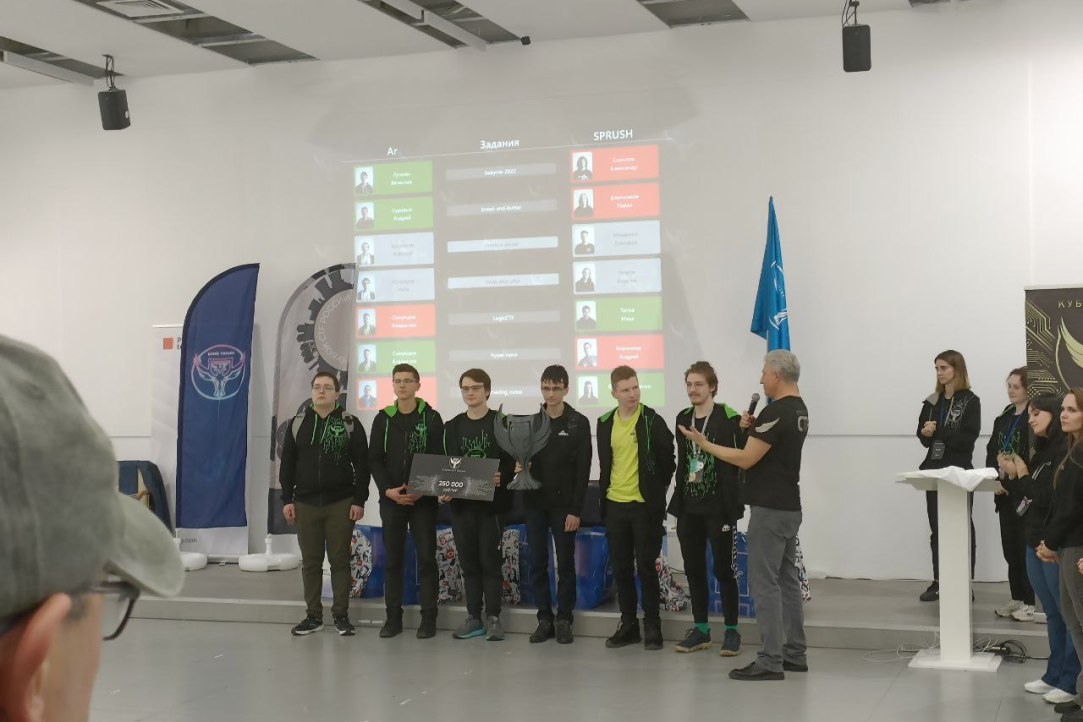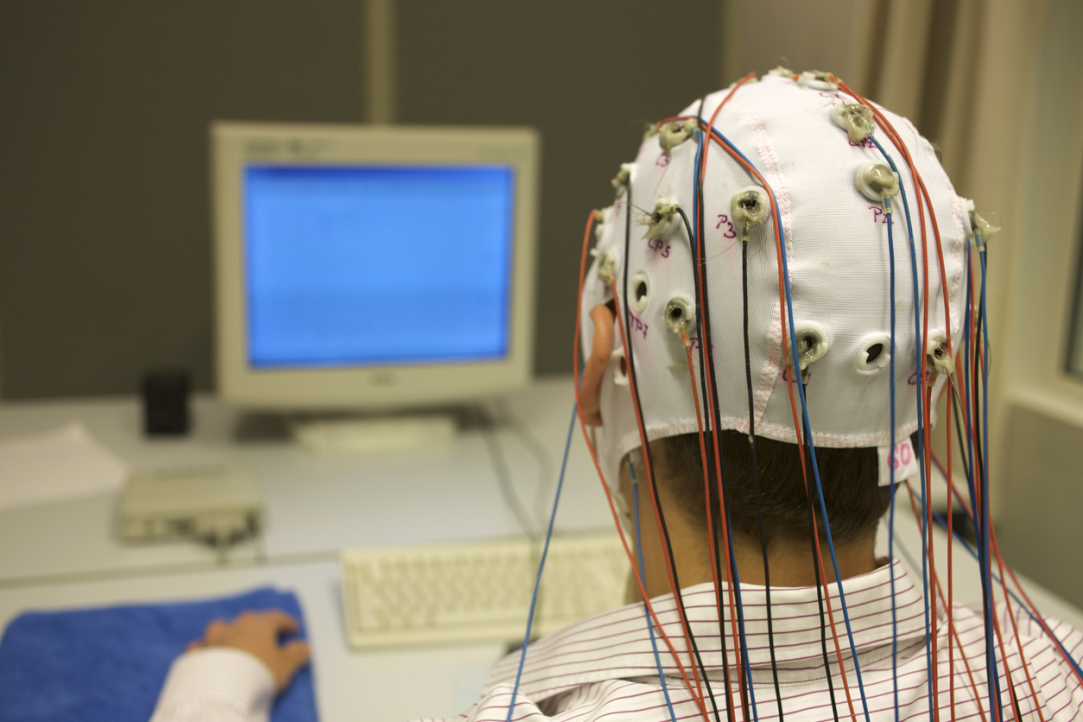
Festival in Tula Welcomes Future HSE University International Students
In December, HSE Preparatory Year students travelled to Tula to attend an international student festival. They got to know the ancient Russian city, presented their cultures at the festival, and participated in a student concert. Students from Macedonia, Syria and China shared their impressions about the event with the HSE News Service, while Russian teacher Anastasiya Zinchenko spoke about how such trips broaden the students’ outlook on the country and make them a better team.
.jpg)
'HSE and VK's Engineering and Mathematics School Lets You Gain Serious Work Experience While Studying'
It has been more than two months since HSE and VK launched a new collaborative educational project: the Engineering and Mathematics School (EMS) based at HSE MIEM. Competitive enrolment was announced in Moscow for HSE students wishing to enter EMS. Those who were admitted are now working at EMS workshops on actual business assignments from VK covering the most in-demand areas of IT, while also attending signature courses led by HSE and VK experts. Several students of the school's first enrolment batch have shared their impressions with the HSE News Service.

Five Specialisations of the Faculty of Computer Science opened on HSE Online Platform
The first two weeks of these video lectures are available to try, free of charge. At the moment, the demand for specializations which are integrated into bachelor's and master's degree programmes at the university, is growing rapidly — this is the next stage of the educational trajectory after short-term online courses.
![HSE University Holds New Year [EXTRA] Celebration Illustration for news: HSE University Holds New Year [EXTRA] Celebration](/data/2022/12/21/1718641631/1m2lkA6FulG4T8-JFDnPy0kabn1wyhCl3Zts_nF1w..nur7tSwq_lbYZwyZdreNTdjH3aEKW71.jpg)
HSE University Holds New Year [EXTRA] Celebration
On December 19, the atrium of the HSE University Pokrovka building was transformed into a large-scale festive fair with a lectern, master classes, a photo zone, photo booth and other activities. The HSE University Cultural Centre also hosted a lively party with a disco and paper show. The organisers and participants of the New Year [EXTRA] event spoke to the HSE News Service about their impressions of this cheerful celebration.

‘In Ethiopia One Night, a Lion came Near My Tent’
HSE University Faculty of Mathematics graduate Sonya Pashchevskaya did not become a mathematician but went instead into the natural sciences. However, her university background comes in very handy when studying the bonobo great apes. In this interview with Age-mates, she talks about the advantages of tent life, the application of graph theory to primatology, and a female ape named Olga.

HSE University-St Petersburg Opens Representative Office in India
HSE University-St Petersburg is opening a foreign representative office in India in collaboration with Swami Vivekanand Subharti University. On December 7, the universities agreed to sign a memorandum of understanding, having reached all the preliminary agreements in November.

HSE Students Become Winners and Finalists of CTF Cup of Russia
Two teams including students from the HSE Faculty of Computer Science and the Moscow Institute of Electronics and Mathematics, are the best in Russia in practical cybersecurity in the framework of the Capture the Flag (CTF) competitions. The main purpose of this type of competition is the exchange of experience and knowledge in the field of information security, professional growth and the development of programming and system design culture among students and young scientists involved in cybersecurity.

'We Wanted to Create an Opportunity for Intercampus Teams to Engage in Promising Studies'
HSE University has announced the winners of the Project Competition in Basic Science Research for Intercampus Departments. The competition, which the university is organising for the first time, will provide funding to 10 research teams working on five topics. Four of the winning projects will be implemented by new research departments formed as a result of the competition.

Speech Register Switching Causes Brain to Struggle with Comprehension
According to researchers at the HSE Centre for Language and Brain, processing a word which is markedly different in style from the rest of the sentence uses the same brain mechanisms as making sense of a semantically incongruent word. These mechanisms reflect the brain’s efforts to process an unexpected term. The study findings have been published in the Journal of Neurolinguistics. The research was financed by a grant from the Russian Government as part of the 'Science and Universities' National Project.

Hybrid Formats and Psychological Education: Russian Education Trends 2023
The results of a study into the impact of global trends on Russian education show that future education will rely on hybrid formats, micro-credentials and dual learning. The study was conducted by the Laboratory for Educational Innovation Research of the HSE Institute of Education in cooperation with the Rosatom State Atomic Energy Corporation. This is the second study on this topic.


Submission Deadline: December 20, 2025